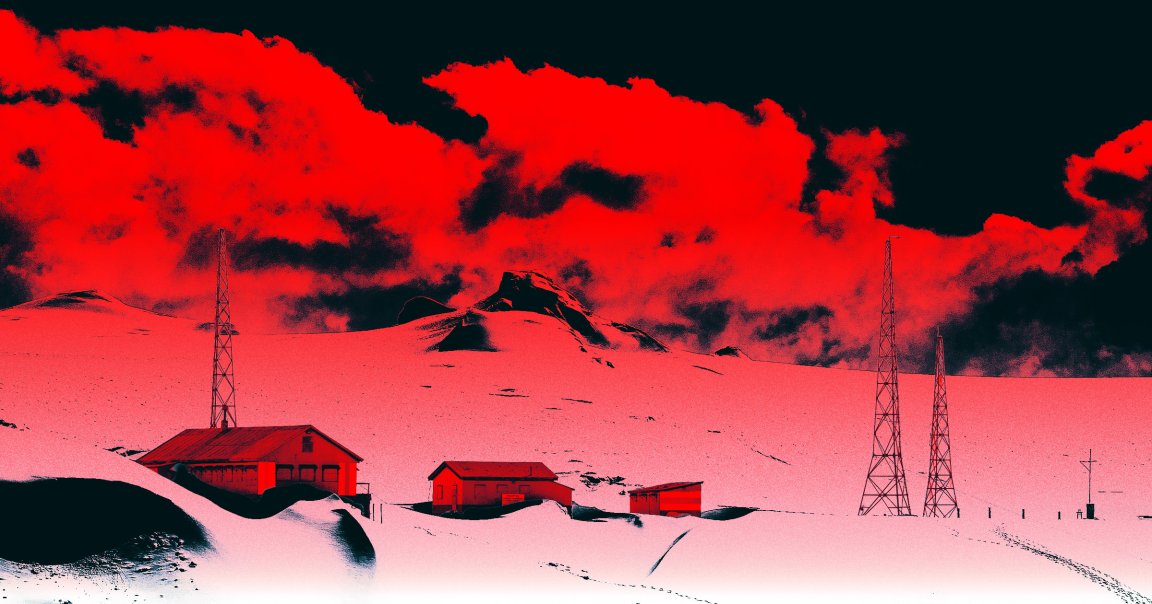
If you think your job is tough, just be glad you haven’t had to do a tour at an Antarctic research base.
A horrifying new workplace survey by the US National Science Foundation is raising alarms about a terrible HR crisis unfolding on the white continent. In particular, the report found that sexual assault, sexual harassment, and stalking were regular facts of life for those stationed on remote research stations.
The confidential survey was open to all 2,760 US Antarctic Program (USAP) employees and contractors stationed between 2022 and 2024. Of those who responded, a blistering 40 percent said they experienced at least one incident of sexual assault or harassment on the job.
Sexual assault and harassment is so endemic on USAP research bases that just under 70 percent of survey respondents said they witnessed at least one incident. These include sexual remarks or jokes, overtly sexual flirtation, and touching in sensitive places without consent.
While you might imagine predatory men losing all self control due to cabin fever overwinter — a real concern, to be fair — the ratio of male to female victimhood is actually higher in Antarctica than the US national average. Of the USAP workers who were assaulted or harassed on base, nearly 60 percent identified as female, while 36 percent identified as male, suggesting a pervasive culture of workplace harassment.
Though nearly all workers who responded to the survey said they understood the definitions of sexual assault and harassment, less than 85 percent of them knew their options when it came to reporting incidents. That’s dramatically reflected in reporting data: though some 64 percent of bystanders to sexual misconduct talked to someone about the incident, only 25 percent said they made an official report.
The harrowing statistics reflect a broader cultural issue afflicting USAP staffers working in the extreme isolation of Antarctica, and the failure of management to get ahead of it. A huge issue is the fact that the majority of US workers in Antarctica are technically third party contractors.
During the summer months, up to two-thirds of USAP personnel are contracted by non-government, for-profit companies. Over the winter, when bases tend to slim down and table most research and survey activities, that number jumps up to 90 percent.
Futurism spoke to an electrical contractor who was recruited to overwinter at the Amundsen–Scott South Pole Station earlier this year by a third-party staffing agency. Amundsen–Scott is one of three USAP stations operating year-round, hosting some 150 personnel over the summer, and around 50 during the Antarctic night.
While the experience was fascinating, the electrical contractor reported widespread frustrations with third-party management, a lack of institutional knowledge due to a high turnover rate, and decisions being made for liability reasons — essentially, so the staffing agency could keep its government contract.
“It felt so crazy disorganized,” he said. Due to intermittent satellite phone coverage, he could “barely talk to people where all the help is at, the management company’s operations center in Denver, Colorado. They’re the ones making staffing decisions, who to fire, who to discipline.”
Under the best conditions, Amentum could be reached by satphone for eight hours in the middle of the night — an issue which “adds to the disorder,” the contractor said. While USAP companies can fire and discipline workers from the mainland, the harsh conditions mean a worker will still have to wait it out until planes resume trips in the Spring, even after being terminated.
Essentially, that means any employee who experiences harassment or intimidation from a coworker faces the prospect of remaining cooped up with their abuser for months, until the weather clears and they can be escorted off-base.
Though the worker interviewed by this publication spoke highly of his coworkers and didn’t witness any incidents of sexual violence, he noted the management chaos often leads to HR disasters, including a Christmas brawl requiring medical evacuations, a visit from a US government investigator to look into incidents of sexual assault, and the grisly death of two maintenance technicians.
More on Antarctica: Hordes of Tourists Are Trashing Antarctica